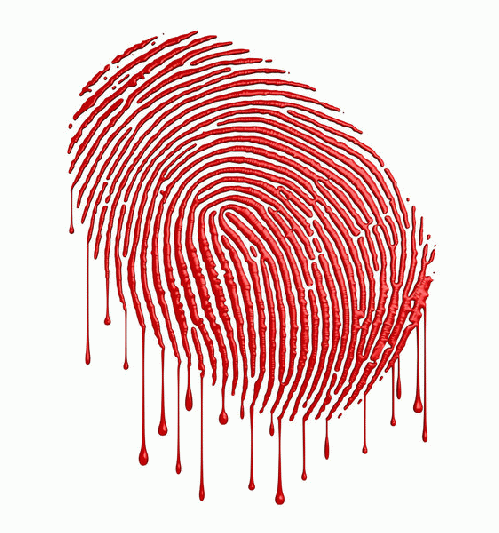She was attacked by a mob of frenzied men in Cairo's Tahrir Square, and she spent days recovering in a hospital. In The New York Times last week, she said: "What really struck me was how merciless they were. They really enjoyed my pain and suffering. It incited them to more violence."
The perverse pleasure that her frenzied attackers exhibited has many variations among people, involving levels of misconduct that extend from cruel to criminal to barbaric. This perversity is produced by unconscious processes that are part of human nature and common to us all.
We humans have a dark side in our psyche that makes us capable of vicious, evil behavior. One aspect of this dark side is the perverse, intoxicating pleasure that is available to us when we exult in feelings of power over a helpless victim or a passive group or population.
According to classical psychoanalysis, we all have an inner drive known as libido, through which we create and experience various forms of pleasure. This pleasure is not just sexual but broadly based. For instance, we can "libidinize" the satisfaction of helping others or the gratification of our physical or intellectual achievements.
However, libido can also dip into the dark side. This causes the pleasure to be experienced perversely, as when we take pleasure in seeing others suffer or when we feel righteous or morally superior in our negative judgment of others. In another example, unhealthy narcissism can be understood as the "libidinization" of self-centeredness.
On the surface, rapists and pedophiles get their gratification sexually. Their perverse pleasure, though, is more psychological than sexual. Their big "turn on" is the feeling of absolute power they have over their victims.
This same dynamic is at play with perpetrators of domestic abuse, children and adults who mistreat or torture animals, schoolyard bullies, and bosses or supervisors who mistreat their subordinates. Violence, terrorism, and vengeful actions are fueled by perverse pleasure. In another example, moral degeneracy arises when members of a ruling class produce perverse gratification in feelings of superiority and power over the people.
It is also easy for children and adults to "libidinize" behavior that is culturally or morally forbidden (for instance, in experiencing the thrill of lying, stealing, and being defiant).
Terrorists and criminals can find perverse pleasure in acting violently toward others. Inwardly, they are very weak. Their sense of self is degraded by inner conflict and unresolved negativity. They don't value the feelings and lives of others because they don't value themselves. They produce victims out of their unconscious determination to feel like victims themselves or to feel helpless.
Hence, such individuals are seduced by illusions of power. T hey feel a pleasure, thrill, or manic excitement when they produce this phony power that covers up or denies their victim mentality. Terrorists, for instance, employ an unconscious alibi to this effect: "I am not helpless against those with power. I, too, have power. I enjoy the thrill of defiance, the power of destructiveness, the certainty of my righteousness , and fearlessness in the face of death ." Though the ir pleasure is completely perverse, it provides an emotional foundation for irrational beliefs and subsequent mayhem.
Hundreds of variations of perverse pleasure are wrecking havoc on personal and national levels, and I describe some of them in my e-book, Why We Suffer: A Western Way to Understand and Let Go of Unhappiness (Amazon).
Here's another example of how perverse pleasure is evil's facilitator. In recent years, Jewish groups have been investigating hundreds of lesser-known killing fields in Eastern Europe where some 1.5 million Jews met their deaths during World War II. Many of them were murdered by their neighbors. A spokesperson for the International Institute for Holocaust Research said, "In many cases, locals played a key role in the murders, probably by a ratio of 10 locals to every German. We are trying to understand the man who played soccer with his Jewish neighbor one day and turned to kill him the next."
Psychoanalysis can explain the phenomena. When German officers appeared on the scene brimming with officially sanctioned fascist authority, the locals would have had to access integrity and self-respect to maintain their dignity and protect their Jewish neighbors. Out of inner weakness, they failed to do so. In fear and passivity, they became pawns of the fascists. To save face, they fooled themselves into believing that they were cooperating with the fascists out of their own free will. Instead of identifying with their Jewish neighbors, they now identified with the fascists. Their unconscious rationalization or alibi would have proceeded along these lines: "I am not passively submitting to the fascists. I align myself with them out of my own free will, and I enjoy it. This is what I chose. This is what I want." The locals ma de a pleasure out of what would normally be grotesque and repugnant, thereby saving face and avoiding recognition of their inner weakness. The locals, in order to be certain they would not identify at all with the helplessness of their victims, fully "libidinized" their murderous aggression: "I am not helpless or wanting to feel helpless--look at how much I enjoy the power of destroying these Jews!"
We are responsible for our evil, however unconsciously it arises. To resist the appeal of perverse pleasure, humanity has to become more conscious. We have to break out of our egocentric self-image in order to see ourselves objectively.




